PhD positions available in Brisbane, Australia
The successful candidates will join the Molecular Evolution, Pharmacology and Structure (MEPS) consortium, which was recently established through Australian government funding. The three cornerstones of the consortium (evolution, pharmacology and structure) are combined to uncover the function of bioactive peptides while improving our ability to engineer novel molecules. Two fully funded PhD scholarships (tuition and living allowance) are available from the University of Queensland (UQ) to work on the below projects. The PhD candidature at UQ is a full-time research position (no teaching or service) and is typically completed within 3-3.5 years. The successful candidates will have a strong academic track-record, including research experience in fields relevant to the below projects. Those interested in applying should send their CV and a cover letter to: m.mobli@uq.edu.au or any of the laboratory heads at the bottom of this page.
| Projects: Ion channel structural biology (Biochemistry, biophysics) The research groups have a strong interest in discovery and characterisation of disulfide-rich peptides, many of which are sourced from venomous animals, where they have evolved to exert their function through interactions with ion channels. Subsequently, these peptides have become invaluable tools in elucidating the structure and function of many ion channels. This project involves the use of state-of-the-art biochemical methods for production of peptides and ion channels, and advanced biophysical techniques to study their interactions at atomic resolution. |
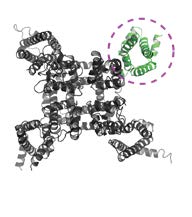 |
| Projects: Ion channel pharmacology (Electrophysiology, pharmacology) The groups have a particular focus on acid-sensing ion channels and voltage-gated sodium channels and their role in pain as well as inflammation / neuroinflammation and their contribution to disorders such as stroke, motor neuron disease and multiple sclerosis. This project will advance our knowledge in these areas through use of electrophysiology methods (two-electrode voltage clamping of Xenopus oocytes / patch clamp of mammalian cells), HPLC, mass spectrometry, molecular biology, peptide and protein production and organ bath assays. |
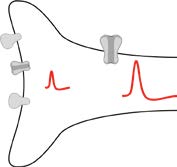 |
| Projects: Multidomain disulfide-rich peptides (Biochemsitry, Biophysics) The groups have recently defined a new class of multidomain disulfide rich peptides with unique pharmacological properties, referred to as Secreted Cysteine-rich REpeat Peptides (SCREPs). Using custom bioinformatics tools, they have established a large database of these molecules and have classified them according to predicted structure and activity. The project involves identification, production and characterisation of SCREPs with potentially novel bioactivity. Production, structural characterisation and evolutionary analyses will be performed in-house, while activity and function will be assessed through a network of ongoing collaborations. |
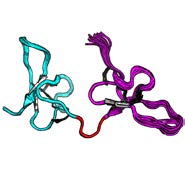 |
| About Brisbane and the University of Queensland UQ is ranked well within the top 100 universities in the world (46 in World Impact Ratings 2019), and hosts a highly productive life science research environment supported by world class research infrastructure. The St Lucia campus, where these projects are based, covers a large area of lakes, sub-tropical plants and wildlife providing a stunning backdrop to a thriving social and academic environment. The campus is located in Brisbane, which is well-known for its relaxed city living, close proximity to beautiful rainforests, excellent diving, and some of the world’s best beaches. |
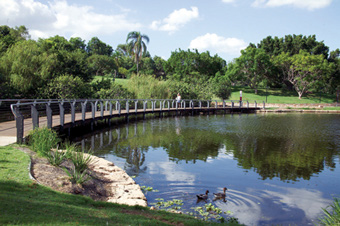 |
Laboratory heads:
| Structural Biology | Ion-channel Pharmacology | Evolutionary Venomics | |||
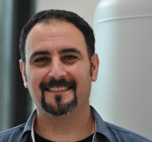 |
Research focus: NMR spectroscopy Biophysics, Proteins, Peptides |
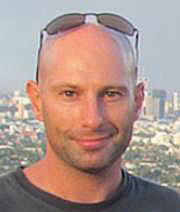 |
Research focus: Pharmacology Ion channels (Ligand/Voltage gated) Electrophysiology |
 |
Research focus: Molecular evoluion Venom biology Mass spectrometry imaging / Proteomics |
|
A/Prof. Mehdi Mobli Graduated from Chalmers (Sweden) as a chemical engineer and completed his |
Dr Lachlan Rash |
Dr Eivind Unheim |
|||
|
https://biomedical-sciences.uq.edu.au/profile/1332/lachlan-rash |
|||||
